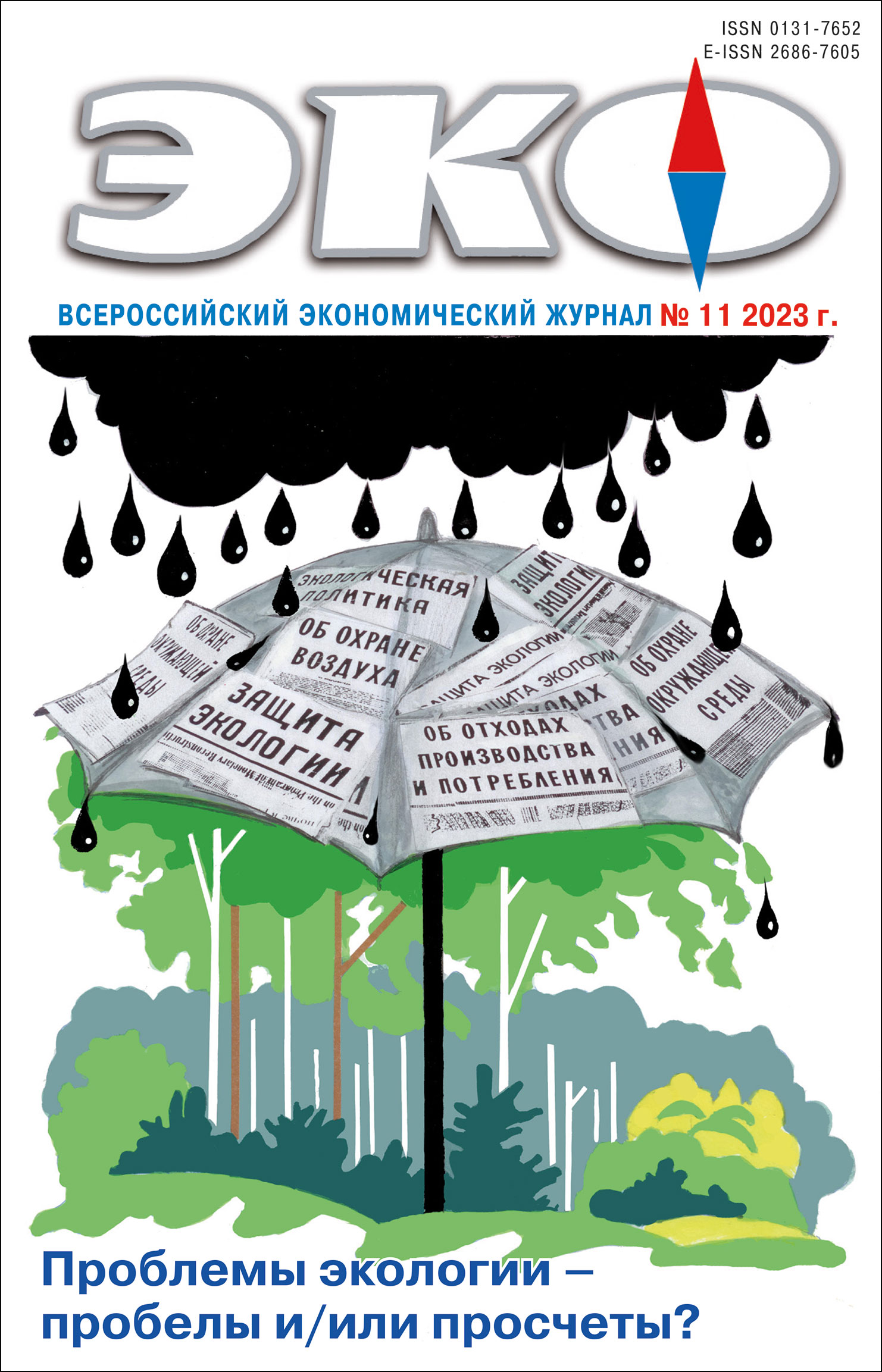ECONOMIC SOCIOLOGY AND DEMOGRAPHY
Published 2023-10-27
Keywords
- trust; social capital; values; modernization; quality of public administration
How to Cite
1.
Makarov А, Ponomarev Ю. Crisis of Trust: Problems of Measurement, Public Values and Other Factors. ECO [Internet]. 2023 Oct. 27 [cited 2026 Feb. 20];53(11):148-72. Available from: https://ecotrends.ru/index.php/eco/article/view/4683
Abstract
According to the current results of the Edelman Trust Barometer, many countries of the world, including Russia, are experiencing a certain crisis of trust, which becomes a serious obstacle to their socio-economic development. The paper considers the issues of ambiguous dynamics of the level of trust, analyzes the trends and possible interrelations of this level with various characteristics of the countries’ development, as well as the established values (according to the methodologies of Hofstede, Inglehart). Based on the comparison of the results of the Trust Barometer and Russian sociological studies, the key problems in the sphere of taking into account the role of trust are shown, including the problem of distinguishing between “justified” and “naive” trust. In Russia, the problem of low trust is partly related to the dynamics of modernization values, which requires additional efforts to develop civil society.References
- Аузан А. Заложники недоверия // Отечественные записки. 2012. № 2 (47).
- Аузан А., Никишина Е.Н. Социокультурная экономика: как культура влияет на экономику, а экономика – на культуру: курс лекций. М.: Экономический факультет МГУ, 2021.
- Инглхарт Р., Вельцель К. Модернизация, культурные изменения и демократия. М.: Новое издательство, 2011.
- Инглхарт Р. Культурная эволюция. Как изменяются человеческие мотивации и как это меняет мир. М.: Мысль, 2018.
- Локке Р. Формирование доверия. Препринт № WP1/2005/07. МГУ – ВШЭ, 2015.
- Рогозин Д.М. По(д)делки в «бумажном» поквартирном опросе // Мониторинг общественного мнения: экономические и социальные перемены. 2015. № 4. С. 3–35. DOI: 10.14515/monitoring.2015.4.01
- Татарко А.Н., Лебедева Н.М. Социальный капитал: теория и психологические исследования. М.: РУДН, 2009.
- Фукуяма Ф. Доверие: социальные добродетели и путь к процветанию. Москва: ООО «Изд-во АСТ», ЗАО НПП «Ермак», 2004.
- Algan, Y., Cahuc, P. (2010). Inherited trust and growth. American Economic Review. Vol. 100. No. 5. Pp. 2060–2092. DOI: 10.1257/aer.100.5.2060
- Delhey, J., Newton, K. (2005). Predicting cross-national levels of social trust: global pattern or nordic exceptionalism? European Sociological Review. Vol. 21. Pp. 311–27. DOI: 10.1093/esr/jci022
- Falk, A., Becker, A., Dohmen, T., Enke, B., Huffman, D., Sunde, U. (2018). Global evidence on economic preferences. The Quarterly Journal of Economics. Vol. 133. Pp. 1645–1692. DOI: 10.1093/qje/qjy013
- Hamilton, K., Helliwell, J.F., Woolcock, M. (2016). Social capital, trust and well-being in the evaluation of wealth. Policy research working paper, n. 7707. World Bank.
- Humphrey, J., Schmitz, H. (1996). Trust and economic development. Discussion Paper 355. Brighton, UK: Institute of Development Studies.
- OECD (2001). The Well-being of nations: the role of human and social capital, education and skills. Paris, France: Organisation for Economic Cooperation and Development.
- Putnam, R. (1995). Bowling alone: America’s declining social capital. Journal of democracy. Vol. 6. No. 1. Pp. 65–78.

